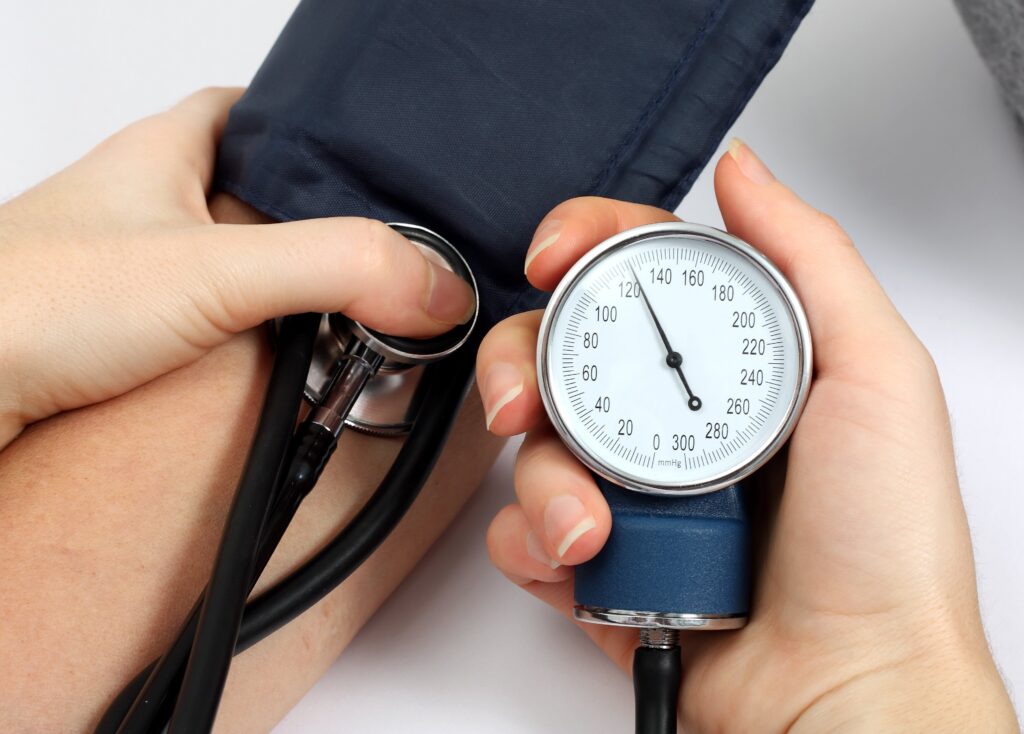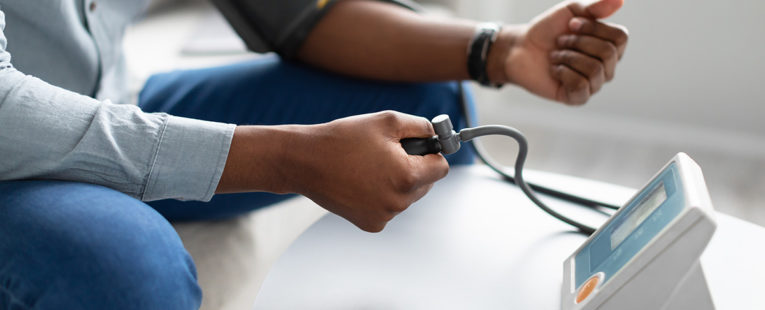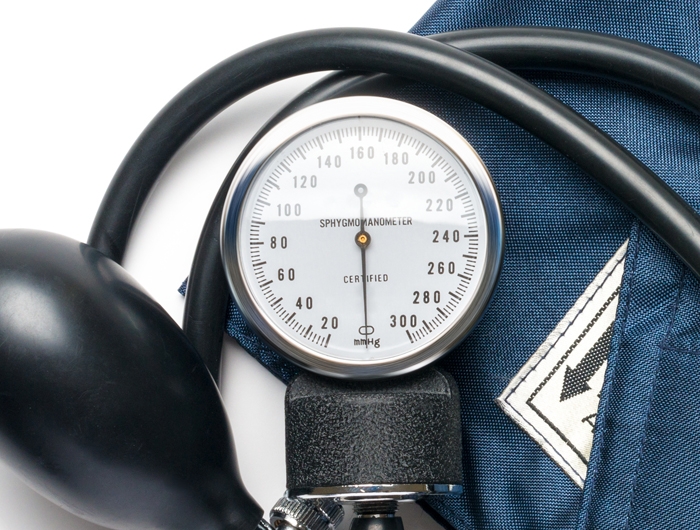
An estimated 1.28 billion adults aged 30-79 years have hypertension Worldwide. The majority two-thirds of whom live in low- and middle-income countries. Approximately 46% of adults with hypertension do not know they have the disease.
On the other hand, less than half of adults with hypertension (42%) are diagnosed and treated, and approximately 1 in 5 adults (21%) have hypertension under control. One of the global Non-Communicable Diseases (NDC) targets is to reduce the prevalence of hypertension by 33% between 2010 and 2030. This is because hypertension is the leading cause of premature death worldwide.
Table of Contents
What is hypertension?
Hypertension also known as high blood pressure is when the pressure in your blood vessels is very high usually 140/90 mmHg or higher. High blood pressure is a common condition that affects the body’s arteries and can be severe if left untreated. People with high blood pressure may not feel symptoms. So the only way to find out is to check your blood pressure.
What are the factors related to hypertension?
If you have high blood pressure, the force of the blood pushing against the artery walls is consistently too high. The heart has to work harder to pump blood.
Blood pressure is measured in millimeters of mercury (mm Hg). In general, hypertension is a blood pressure reading of 130/80 millimeters of mercury (mm Hg) or higher.
The main factors for the higher risks of hypertension disease include the following:
- Aging
- Genetics
- Being overweight or obese
- Lack of physical activity
- High salt diet
- Excessive alcohol consumption
Lifestyle changes such as eating a healthier diet, quitting tobacco and being more active can help lower blood pressure. Some people may still need to take medication.
Blood pressure is written in two numbers. The first (systolic) number represents the pressure in the blood vessels when the heart contracts or beats. The second (diastolic) number represents the pressure in the blood vessels when the heart is at rest between beats.
Hypertension was defined as systolic blood pressure readings ≥140 mm Hg on both days when measured on two different days.
What are the risk factors that cause hypertension disease?
Blood pressure is determined by two things which are: the amount of blood the heart pumps and how hard it is for the blood to move through the arteries. The more blood the heart pumps and the narrower the arteries, the higher the blood pressure.
The following are the modifiable risk factors that can cause hypertension disease:
- Unhealthy diet like excessive salt intake, a diet high in saturated fats and trans fats.
- Low intake of fruits and vegetables.
- Physical inactivity.
- Tobacco and alcohol use.
- Being overweight or obese.
Non-modifiable risk factors include a family history of hypertension, age over 65 years, and coexisting diseases such as diabetes or kidney disease.
What are the symptoms of hypertension disease?
Most people with high blood pressure do not experience any symptoms. Extremely high blood pressure can cause headaches, blurred vision, chest pain, and other symptoms.
Checking your blood pressure is the best way to determine if you have high blood pressure. If left untreated, high blood pressure can lead to other health conditions such as kidney disease, heart disease, and stroke.
People with very high blood pressure usually 180/120 or higher may experience these symptoms:
- Severe headache.
- Chest pain.
- Dizziness.
- Difficulty breathing.
- Mess up.
- Diarrhea.
- Blurred vision or other visual changes.
- Anxiety.
- Delusions confusion.
- Nosebleeds.
- Abnormal heart rhythm.
If you experience any of these symptoms and high blood pressure, treat it immediately and go to the nearest health facility for treatment.
The only way to diagnose high blood pressure is to have a health professional measure your blood pressure.
Measuring blood pressure is quick and painless. Although individuals can self-measure blood pressure using automated devices, assessment by a health professional is essential to assess risk and related conditions.
Hypertension prevention and treatment.

Lifestyle changes can help reduce high blood pressure. These include the following:
- Eat a healthy, low-salt diet.
- Weight loss.
- Be physically active.
- Quit smoking.
- Talk to a doctor.
What are the positive things we need to do?
- Eat more vegetables and fruits.
- Get more physical activity which can include walking, jogging, swimming, dancing, or strength-building activities like lifting weights.
- Get at least 150 minutes of moderate-intensity aerobic activity per week or 75 minutes of vigorous aerobic activity per week.
- Do strength-building exercises 2 or more days a week.
- Lose weight if you are overweight or obese.
- Take medications as prescribed by your healthcare professional.
- Schedule appointments with your healthcare professional.
What are things we shouldn’t do?
- Eat plenty of salty foods (try to reduce to less than 2 grams per day).
- Eat foods high in fats or trans fats.
- Smoking or using cigarettes.
- Drink too much alcohol (1 daily max drink for women, 2 for men).
- Skipping or not taking medication.
Lowers high blood pressure, and prevents heart attack, stroke, and kidney damage as well as other health problems.

To reduce the risks of hypertension do the following:
- Stress reduction and management.
- Check blood pressure regularly.
- Treat hypertension.
- Manage other medical conditions.
What are the complications of uncontrolled hypertension?
Among other problems, high blood pressure can cause serious damage to the heart. Excessive pressure can reduce arterial blood flow and oxygen to the heart. This high blood pressure and reduced blood flow:
- Chest pain, also called angina:
- Heart attack, which occurs when the blood supply to the heart is blocked and heart muscle cells die from lack of oxygen. The longer blood flow is blocked, the greater the damage to the heart.
- Heart failure occurs when the heart cannot pump enough blood and oxygen to other vital organs in the body.
- Irregular heartbeat which can lead to sudden death.
- High blood pressure can also burst or block blood vessels that supply blood and oxygen to the brain, which can cause a stroke.
- In addition, high blood pressure can cause kidney damage, leading to kidney failure.
Hypertension or high blood pressure is a serious but silent condition that can sneak up on you over the years. Seeing a healthcare provider for regular checkups can help you learn your numbers.
If you don’t have access to care, learn about community resources, such as wellness fairs where blood pressure checks are available. Knowing your blood pressure levels is the first step toward making lifestyle changes to help keep your arteries healthy.
Contact East Africa Medical center for consultation.

